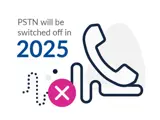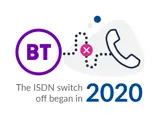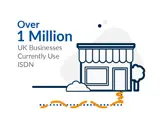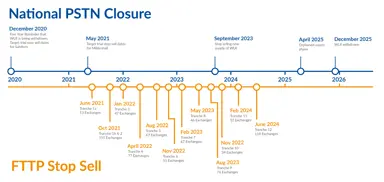These alternative products fall into two categories All-Internet Protocol (All-IP) & Metallic Path Facility (MPF)
All-IP
All-IP are a range of new products which are designed to deliver data only services, meaning they do not have a native ability to pass voice calls.
There is a range of All-IP products either currently available or in development including FTTP, SOGEA, SOGFAST and SOTAP. These are effectively data only versions of GFAST, FTTC and ADSL (their old-world counterparts). More details on these products can be found here.
All-IP products are a data-only service, and if you want to make calls, you will need to purchase an over-the-top Voice over IP product (VoIP). If you wish to retain your telephone number, you will need to port it to the VoIP supplier.
If you use your current PSTN based service to make calls and want to continue to do so following migration to an All-IP product, then you will need to purchase an over-the-top VoIP service.
If you have an existing phone system you want to retain, SIP would be ideal for you. *Link to SIP
If you have simple voice requirements, then there are single voice line options designed to replace the old school analogue line.
If you are a larger business, a feature-rich cloud voice system would be preferable. *Link to cloud voice
MPF
MPF is a legacy technology, which came out of the deregulation or Local Loop Unbundling (LLU) of UK Telecommunications. LLU allows multiple telecommunications operators to use connections from the same local exchange.
The switch-off of the PSTN does not impact MPF services.
MPF services include Analogue Lines, ADSL and FTTC and have a native voice service included, so work with existing analogue handsets/wiring.
MPF removes a requirement to purchase an over-the-top VoIP product.
MPF is an alternative to SOGEA/SOTAP, in locations where FTTP is not available.












